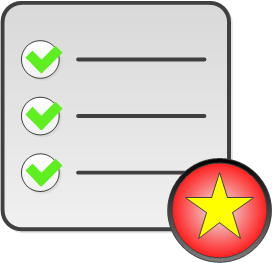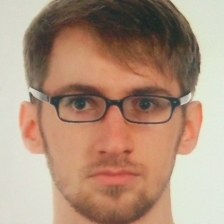Masterarbeit
 Gamified Reminder Systems
Gamified Reminder Systems
Completion
2016/01
Research Area
Students

Advisers

Dr.-Ing. Sebastian Heil

Prof. Dr.-Ing. Martin Gaedke
Description
Patient management systems that are currently used in a medical practice mostly support just medical doctors and assistants in typical activities like calendar management, prescription and accounting. Although involved in medical consultation, patients, pharmacists or transport providers are not incorporated in these systems. Advanced features assisting with analysis and recommendations are not available.
In this context a research question arises how to support different groups of patients in adhering to appointments. Each target group has different characteristics which require a differentiated approach. Depending on each group different best practices apply for tasks like medicine taking and procurement, autonomous measurement of blood sugar, peak flow etc.
While helping elderly patients to remember their dates is advised, younger patients have to be supported to increase their motivation. This can be achieved through playful appeal as it is investigated in Gamification research. Successful applications like Runtastic, Runkeeper and wearables like UP, Apple Watch etc. demonstrate positive reinforcement of healthy behavior through playful motivation and social networking. Reward points, display of progress, predefined levels and badges, competitive comparison with friends and social interaction are playing an important role in this context.
A suitable reminder application supporting younger patients harnesses the findings of Gamification and Social Web and applies this knowledge to recall appointments in a medical context.
Description (German)
Aktuelle in Arztpraxen zum Einsatz kommende Patientenverwaltungssysteme unterstützen primär die Arbeit der Ärzte und Arzthelfer zum Beispiel durch Verwaltung von Terminen, Verschreibungen, Abrechnung etc. Andere an einem Arztbesuch beteiligte Rollen wie z.B. Patient, Apotheker oder auch Transportanbieter werden in diesen Systemen nicht berücksichtigt. Fortgeschrittene Assistenzfunktionen durch Analyse und Vorschläge sind nicht verfügbar.
Eine Forschungsherausforderung ergibt sich in diesem Kontext aus der Frage, wie man unterschiedliche Zielgruppen von Patienten jeweils optimal bei der Einhaltung von Terminen unterstützen kann. Jede dieser Gruppen hat bestimmte Charakteristika, welche eine differenzierte Herangehensweise bedingen.
Für Termine im Praxisumfeld - z.B. Untersuchungstermine, Einkauf und Einnahme von Medikamenten (Verordnungsplan), Selbstständig vorzunehmende Messungen wie Blutzucker, Peak Flow etc. - sind je nach Zielgruppe unterschiedliche Vorangehensweisen zielführend.
Während bei älteren Patienten die deutliche Erinnerung im Vordergrund steht, benötigen junge Patienten eher eine Motivation. Dies kann in Form von spielerischen Anreizen, wie im Rahmen der Gamification-Forschung untersucht, geschehen. Erfolgreiche Anwendungen wie Runtastic, Runkeeper etc. oder das zunehmende Aufkommen von Wearables wie UP, Apple Watch etc. demonstrieren, wie mittels spielerischer Motivation und sozialer Vernetzung das Verhalten gesundheitlich positiv beeinflusst werden kann. Eine wichtige Rolle spielen z.B. Belohnungspunkte, Darstellung von Fortschritt, definierte Level und Abzeichen, kompetitive Vergleiche mit Freunden und soziale Interaktionsmöglichkeiten.
Eine geeignete Erinnerungslösung zur Unterstützung junger Patienten wendet die Erkenntnisse aus den Bereichen Gamification und Social Web auf Terminerinnerungen im Praxisumfeld an.




